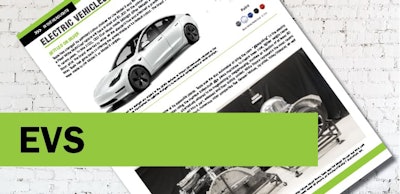
BATTERY BAN
In September 2023, a Toronto real estate company banned the use of EVs on their properties continuing an ongoing debate about the future safety of lithium-ion batteries. The ban is in response to the perceived risk of fire hazards that the lithium-ion batteries in EVs could pose. While lithium-ion batteries are frequently used in consumer electronics, the batteries in EVs are often more prone to damage due to potential collision risks. Under the Residential Tenancies Act, renters at the affected buildings may be able to push back against the ban as it could infringe on their right to the “reasonable enjoyment” of the premises. Individuals who rely on electric vehicles due to health or mobility issues may also be able to challenge the ban as infringing on their human rights.
INCORPORATING INCONVENIENCE
In a recently released patent filed by Toyota, the automaker has revealed its intention to design EVs with the capacity to stall in order to capture a “real” driving experience. Toyota has longsince declared its desire to simulate a manual transmission in its fully electric vehicles with a shifter and clutch pedal. In addition to the manual transmission, the patent also states that Toyota’s Evs will have a simulated tachometer and “idle speed.” If a driver drops below this “idle speed,” the EVs inverter will instantly set the electric motor’s torque to zero simulating a stalling sensation with the vehicle receiving no more tractive power. Moreover, the entire “MT” mode can be shut off in favour of regular EV driving if desired, and the car will sense if it’s in a situation where stalling would be potentially dangerous (such as on a hill with traffic).
BATTERY BATTLE
























